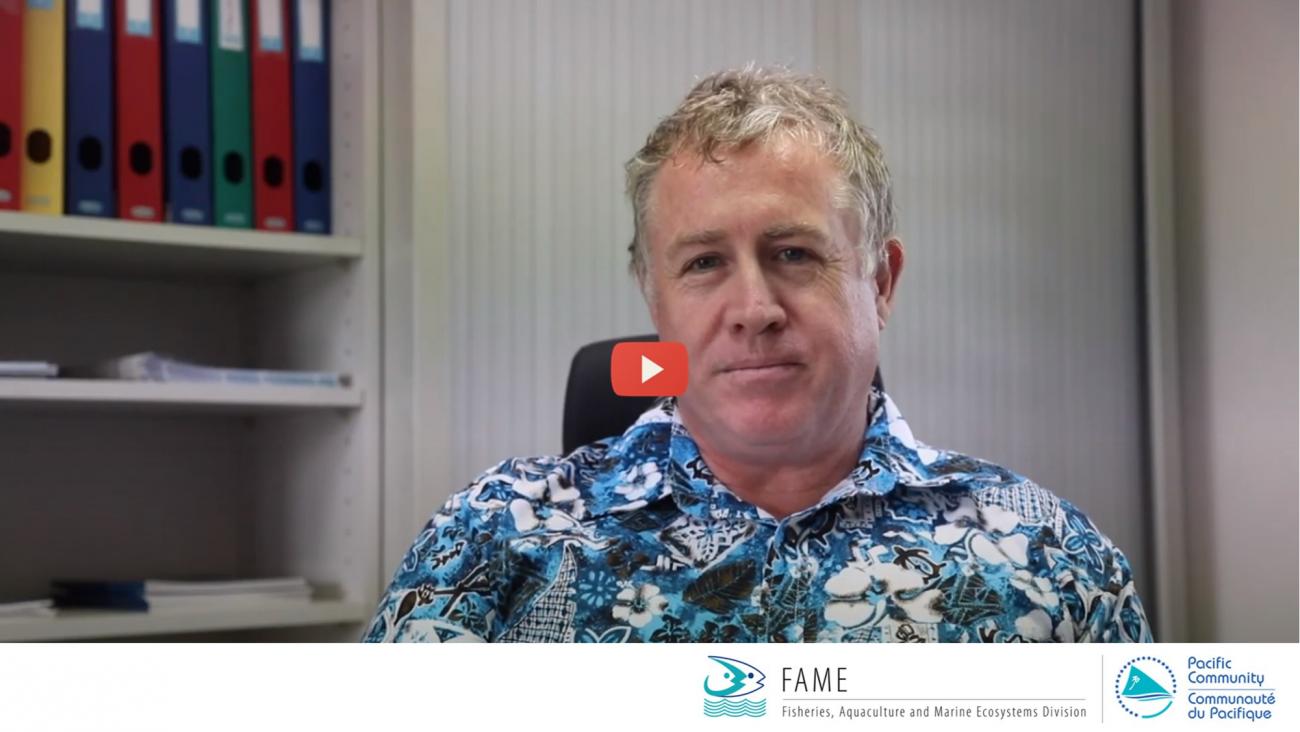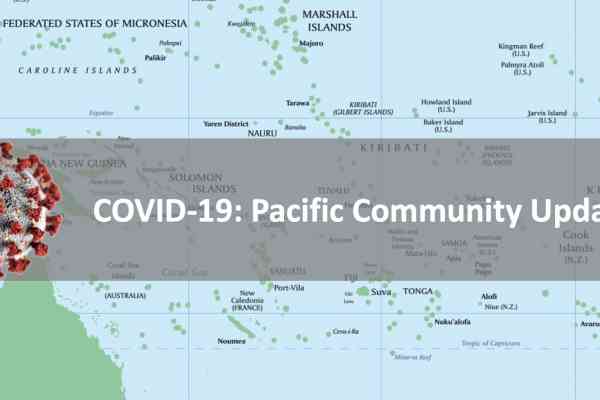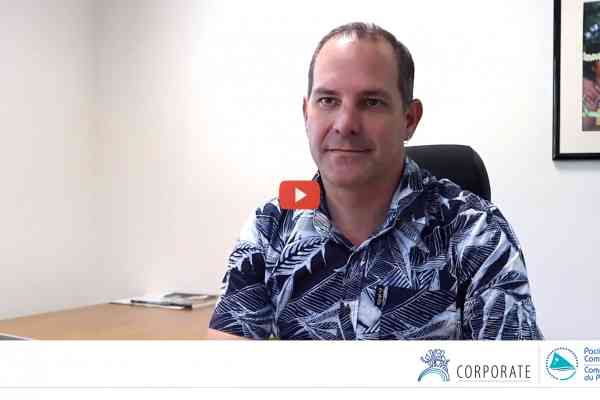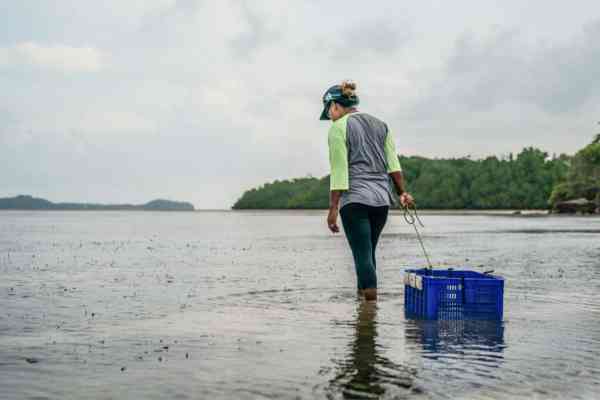 How is the crisis affecting the fisheries and aquaculture sectors in the Pacific?
How is the crisis affecting the fisheries and aquaculture sectors in the Pacific?
The Fisheries, Aquaculture and Marine Ecosystems (FAME) division of SPC is dealing with three different sectors here in the Pacific, and the COVID-19 crisis is affecting each of these sectors differently.
We have the tuna sector and the large, industrial tuna fisheries; the coastal fisheries which are at a much smaller scale, at community level; and we have aquaculture sector which is split into food production for local consumption, and high-value aquaculture production for export.
The crisis is impacting each of these sectors differently. In the Tuna fisheries sector, the main impact is the ability of people to move, and to keep the fisheries going. For example, the fisheries observers are not able to travel, to get on fishing vessels. In addition, lots of ports are currently closed. There are also people-related issues to deal with. The observers, for example, have families at home, and observers have to be repatriated.
At the same time, the countries have to find ways to keep their fisheries operating, because this sector is crucial for the region. The tuna industry is worth a lot of income for the countries, and with the tourism that is being shut down, it is really important that this money keeps flowing into the region.
The impact on coastal fisheries is also important, in many places. With the shutdown of tourism, many people move away from urban centres, from their jobs, and go back to their villages. That is having direct impact on people being more active in subsistence fishery, resulting in an increased pressure on coastal resources – Which were already under pressure. In the longer-term, our challenge of ensuring the sustainability of coastal fisheries will be greater.
On the aquaculture sector, some of the key issues also relate to people’s movement and transport of products, but this crisis also significantly increases the demand for food production, in order to address food security issues.
What are the risks associated with this situation?
There is a big economic reliance on tuna fisheries in the region, and particularly within SPC member countries which are the Parties to the Nauru Agreement*. Tuna fisheries are very important to their economies. One of the impacts that this crisis could have would be a significant drop in their Gross Domestic Product (GDP). This impact, in combination with the loss of revenues from tourism, could have severe consequences on their economies.
One of the other key risks relating to tuna fisheries is the flow of information. With the fisheries observers no longer on the vessels, there’s a change in the flow of data available to us for future fisheries management. It is not going to be a problem this year, because the information we are using for the 2020 tuna fisheries assessment is based on data from 2019. For 2021 and beyond, it will potentially be in issue, depending on how long the disruption on fisheries lasts for.
For the aquaculture sector, some of the immediate potential issues regard the supply of feed. For instance, how do we ensure that feed for tilapia production continues to flow to region? This can be a big issue, since it can lead to a decline in the production from the aquaculture sector. Moreover, it comes in combination with potential reduction of availability in coastal fish, due to an increased pressure on resources. These two factors could contribute to exacerbating any potential humanitarian crises in the region, with respect to access to food supplies. That is a particular concern to us.
What is SPC doing to support these three sectors?
In the tuna sector, SPC continues to provide advice to the Pacific Islands Forum Fisheries Agency (FFA), which works on the management of the tuna fisheries. SPC provides scientific and technical advice to them. We hold very regular meetings with our colleagues at FFA, and with their membership across the Pacific. This is an integral piece of work that continues to happen at a fast pace.
We’re also in the midst of preparing for the annual 2020 tuna fish stock assessments, for which we will use data from 2019. The team is continuing to work remotely on these assessments as we speak. These assessments will still be delivered on time, as they would have been in a year without the COVID-19 crisis.
In addition, we are helping members meet their annual reporting requirements for the tuna information that they have to provide to the tuna commission of the Western and Central Pacific Fisheries Commission (WCPFC). This is happening right now, with a 2-day online workshop with members, using the online tool Zoom. This workshop is going on very well, with over 70 participants.
In the coastal fisheries sector, we’re focusing on re-scheduling work for later in the year, but also trying to re-invent how we do certain work: what training can we deliver online? What are the other tasks that we can complete right now? For instance, we are updating manuals on how to utilize Fish Aggregating Devices (FADs) in national fisheries.
In the aquaculture sector, we’re actively working with countries to make sure that we have a continuous flow of aquaculture feed coming into the region, and also that this feed and hatchlings can continue to move from areas outside the lockdown to area under lockdown inside the countries.
How do you manage to keep the work going?
In terms of keeping FAME working, one of the key priorities for us is communications. We’ve used online communications tools previously, but we’ve had to change our use of online tools, and in particular the frequency of our online meetings. That is obviously creating some challenges from staff, fatigue, with too many meetings, and also too much time staring at screens.
The team has had to get quite inventive in order to smoothly handle the transition from working in the office or in the field to working online. It takes quite a bit of energy, and an important task for the FAME’s leadership team has been to make sure people’s energy levels stay up, that they stay motivated and focussed on the work so that we can continue delivering services to our member countries and territories.
*The Parties to the Nauru Agreement (PNA) is a sub-regional agreement on the coordination of management of tuna fishing in the EEZs of the Parties: Federated States of Micronesia, Kiribati, Marshall Islands, Nauru, Palau, Papua New Guinea, Solomon Islands and Tuvalu.



